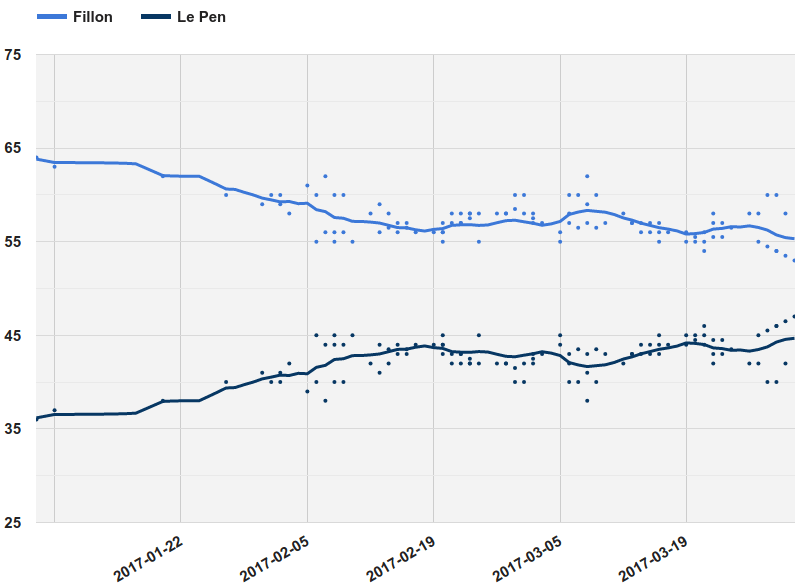French candidate Fillon: building a family fortune through nepotism
It’s kind of an unsaid state of affairs in French politics that corruption is the norm. Even so, the scale of the problems facing French presidential candidate François Fillon is far from usual – when he stormed to victory last November in the Republican primary, polls predicted he would effectively be a dead cert to wind up as the nation’s next president. After a number of scandals, the press is on tenterhooks waiting for him to drop out of the race altogether, and the Élysée looks further away than ever.
Who paid who for what
Things began to hit unsteady water in January when Le Canard enchaîné, a satirical weekly, published an article about Fillon’s wife Penelope. It alleged that she had been employed as a parliamentary assistant to her husband and his successor Marc Joulaud, earning €831,440 over eight years. In France, it is not illegal for politicians to employ their relatives, but the sticking point is that it seems Penelope Fillon never actually did any work. She has often been positioned as a housewife (by Fillon himself), and in a Telegraph interview in 2007, Penelope herself stated: ‘I have never actually been his assistant.’
Madame Fillon is also facing allegations of unfair payment by French magazine Revue des Deux Mondes, which paid her €100,000 for a handful of short articles. The magazine’s president, Marc Ladreit de Lacharrière, is, unsurprisingly, a close friend of François Fillon. On February 1, Le Canard revealed that the total sum of money received by Penelope Fillon for ‘fake jobs’ totalled well over €930,000.
Penelope herself stated: ‘I have never actually been his assistant.’
The apple doesn’t fall far from the tree
Perhaps eager to spread the blame around, the paper had some revelations about the rest of the family. Two of their children are also suspected of receiving money for fake jobs as parliamentary aides, pocketing €80,000 between them. As for Fillon himself, he has been placed under formal investigation by the French authorities after failing to declare a loan of €50,000, triggering an examination for ‘failure to make compulsory declarations’ to the authority for transparency. Fillon had declared that he would drop out of the race if he were placed under investigation, but now insists on maintaining his candidacy.
A lasting blemish?

Image: Wikipedia
All parties involved have protested their innocence, but the effect these allegations have had on Fillon’s presidential bid are considerable. Campaigning to win the Republican nomination, Fillon tried to portray himself as a morally spotless character – a reputation that his long-since vanished now. Similarly, his refusal to drop out of the race, insisting that the French people shall be his judge, led to many in his party leaving the campaign. This is understandably so as, according to recent polls, it will not be a kind judgement – it looks as though Fillon will be knocked out in the first round of voting, leaving a competition between the centrist Emmanuel Macron and the Front National’s Marine Le Pen.
Fillon tried to portray himself as a morally spotless character – a reputation that his long-since vanished now
If the investigation does not go his way, the result of the election will be very important for Fillon. Winning will grant him immunity from prosecution during his term. On the other hand, losing the election, coupled with a guilty verdict, would cause him to face a 10-year prison term and a €1 million fine.
Fillon is desperately seeking to stabilise his campaign, and it seems that, despite the accusations, he is making small steps. However, Penelope Fillon is set to appear before judges on 28 March to face potential charges, while the investigation into Fillon himself continues – another negative revelation for Fillon could be the final nail in the coffin of his presidential dream.

Comments